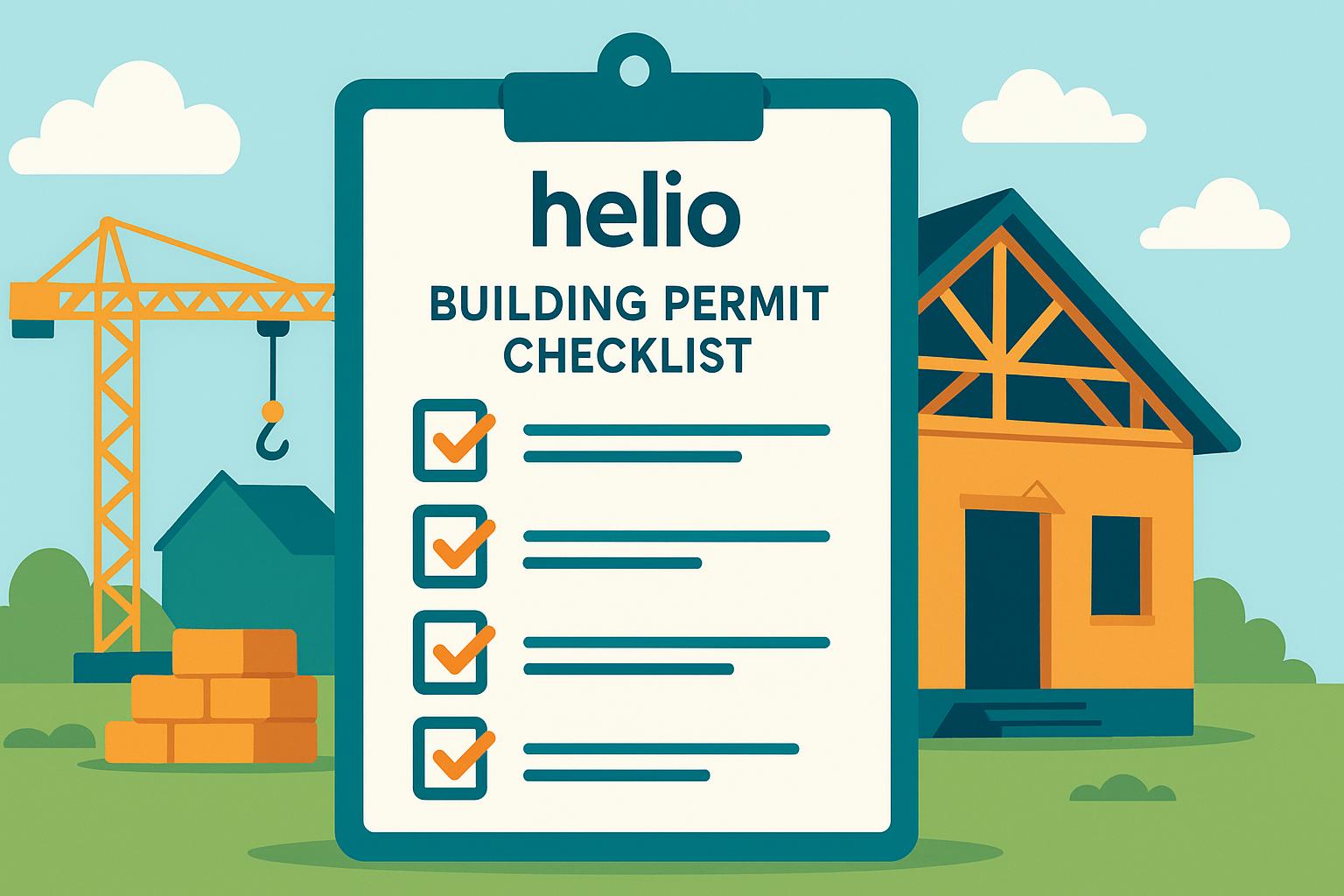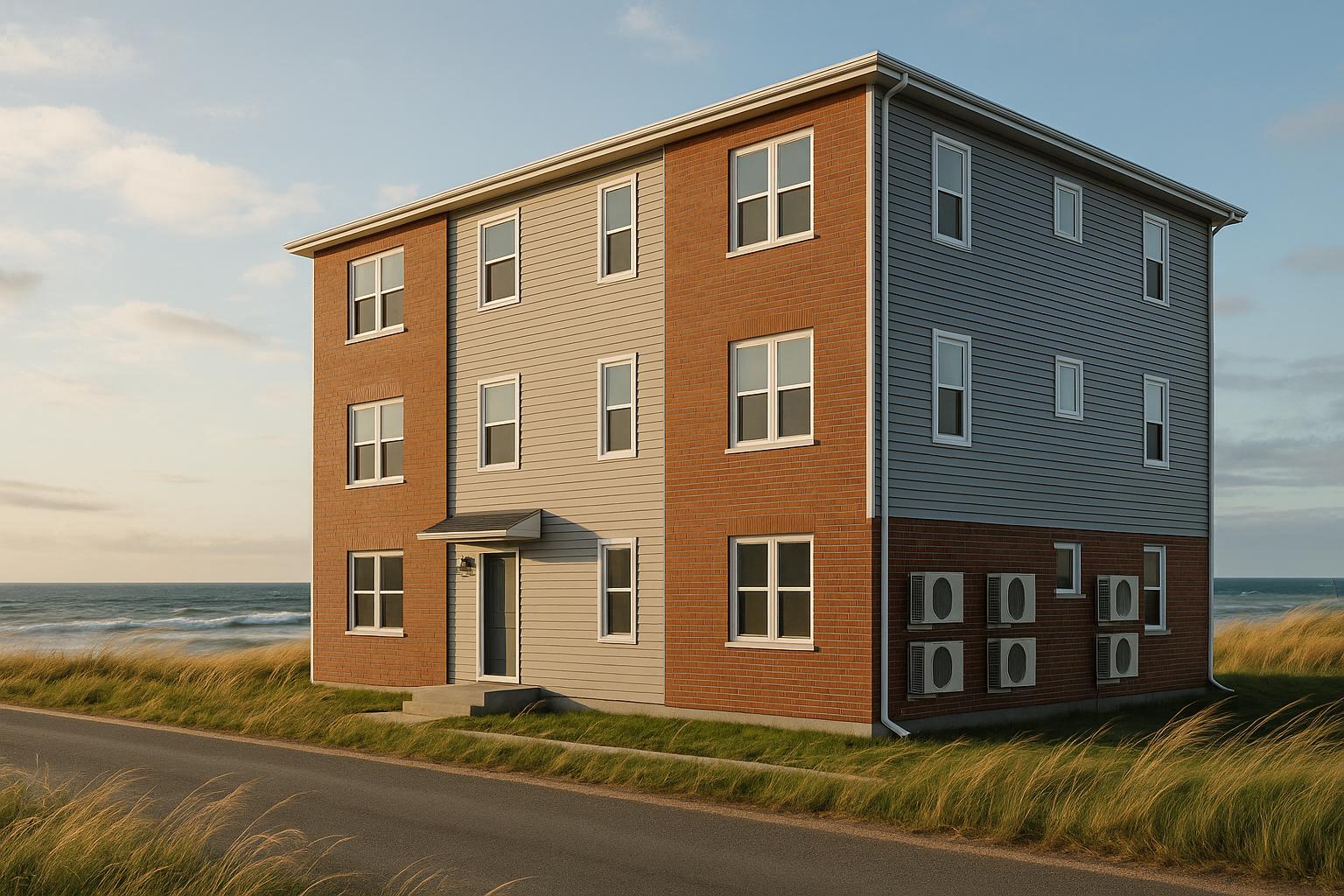Halifax’s new parking waiver strategy is changing the game for property owners. By removing minimum parking requirements in key zones like ER-3, HR-1, and COR, the city is enabling developers to save on construction costs, add more rental units, and boost profits. This policy, introduced in 2024, supports Halifax’s goal of creating denser, transit-friendly communities while addressing housing shortages.
Key Takeaways:
- No mandatory parking: Developers can skip building parking spaces, reducing costs.
- More rental units: Saved space can be used for additional housing, increasing revenue.
- Zoning flexibility: ER-3 allows up to 8 units on single-home lots; HR-1 supports high-density development near transit; COR combines residential and commercial use.
- Financial benefits: Projects without parking yield higher returns, with up to $46,800 more in annual rental income for an 8-unit ER-3 property.
This policy aligns with Halifax’s urban planning goals, offering property owners a chance to maximize land use while reducing reliance on cars. For those interested, consulting Halifax’s planning department is the first step to navigating zoning rules and parking waivers.
Halifax Zoning Rules: ER-3, HR-1, and COR Explained

Halifax's zoning classifications are key to shaping multi-unit or mixed-use developments. Each zone comes with its own set of rules and opportunities, offering flexibility depending on the type of project you're planning. Let’s break down what each zone allows and how parking requirements vary.
What You Can Build in Each Zone
Halifax's zoning system is divided into several categories, each tailored for specific types of developments:
- ER-3 Zones: These zones are designed for multi-unit residential projects in well-established neighbourhoods.
- HR-1 Zones: Perfect for high-density developments, HR-1 zones are typically located near transit hubs and commercial centres.
- COR Zones: These zones encourage a mix of residential and commercial spaces, making them ideal for mixed-use projects.
Each zone has its own guidelines, including limits on the number of units and building height. To ensure compliance, property owners should always refer to the latest zoning bylaws for precise details.
Parking Rules and Waiver Options
Parking requirements vary across zones, adding another layer to the planning process. For HR-1 zones, current regulations require one parking space for every three units [1]. However, parking rules for ER-3 and COR zones are not clearly defined in the existing regulations. To avoid confusion, it's a good idea to review the latest municipal guidelines or consult with city planners about parking requirements and potential waiver options.
How to Apply for Parking Waivers
If you're planning a project in Halifax's ER-3, HR-1, or COR zones, your first step is to connect with the municipal planning department. They can guide you through the current parking waiver requirements. While specific forms aren't publicly accessible, it's essential to prepare project materials that align with both local planning goals and community interests. This initial consultation will help you understand exactly what documents you'll need for your application.
Required Forms and Documents
To get started, gather all relevant project details that showcase your plans and any potential cost-saving advantages. This might include a thorough project description and site information that emphasizes efficient land use. Since requirements can vary, double-check with the municipal planning office to confirm you've included everything necessary. This step ensures your submission is complete and avoids unnecessary delays.
Approval Process and Common Problems
After submitting your materials, the review process kicks off. The planning department will assess how well your project fits with Halifax's urban planning goals. Since specific timelines and criteria aren't publicly outlined, be prepared to provide additional information if requested. To keep things moving smoothly, consider engaging local community representatives and presenting well-organized, detailed documents.
A well-prepared waiver application is crucial for achieving a zero-parking approach, which can lead to higher unit yields and reduced construction costs. For more guidance, reach out to Halifax's municipal planning department directly.
Cost Savings and Revenue Gains from Zero Parking
Eliminating parking requirements brings clear financial benefits for property owners. It reduces upfront construction costs, lowers ongoing maintenance expenses, and frees up space for additional rental units. Together, these advantages not only cut costs but also create opportunities for increased revenue.
Construction Cost Reductions
Skipping parking construction can significantly cut expenses. Key processes like excavation and waterproofing are no longer necessary, reducing both initial costs and ongoing maintenance. Plus, with a shorter construction timeline, you can start generating rental income much sooner.
More Units Mean More Revenue
Choosing a zero-parking approach allows you to use the saved space for more rental units. For instance, on an ER-3 lot, you could build 8 units instead of 6 under traditional parking rules. Based on Halifax's current market rates for two-bedroom units, those extra units could bring in an additional $3,900 to $4,200 in monthly rent.
Cost Comparison: With Parking vs Without Parking
The table below breaks down the financial impact of an 8-unit ER-3 project, comparing scenarios with and without parking.
| Project Element | With Parking (6 units) | Zero Parking (8 units) | Difference |
|---|---|---|---|
| Construction Cost | $1,080,000 | $1,280,000 | +$200,000 |
| Parking Construction | $120,000 (8 stalls) | $0 | –$120,000 |
| Total Investment | $1,200,000 | $1,280,000 | +$80,000 |
| Monthly Rental Income | $11,700 | $15,600 | +$3,900 |
| Annual Rental Income | $140,400 | $187,200 | +$46,800 |
| Annual ROI | 11.7% | 14.6% | +2.9% |
This analysis assumes a construction cost of $160,000 per unit and an average monthly rent of $1,950 for a two-bedroom unit in Halifax. Even with a slightly higher total investment, the zero-parking approach generates significantly more rental income and improves return on investment.
Abundant Parking Options Nearby
Halifax’s existing parking supply makes the zero-parking strategy even more feasible. The area boasts over 2,100 on-street paid parking spaces in peninsular Halifax and downtown Dartmouth. Major parkades, like Scotia Square (1,700 spaces) and Purdy’s Wharf (1,088 spaces), provide additional options for tenants who need parking [2].
"There is plenty of parking downtown! People who think there is no parking downtown simply don't go downtown, or they want to park immediately in front of their destination and refuse to park in garages."
- Tim Bousquet, Halifax Examiner [2]
With ample parking nearby, tenants still have convenient options without requiring on-site spaces. This lets property owners focus on maximizing revenue through additional rental units while maintaining tenant satisfaction.
sbb-itb-16b8a48
Managing Risks and Following Best Practices
When there's no designated parking, property owners need to think ahead. Proactive planning helps address neighbourhood concerns, ensures compliance with regulations, and avoids delays - all while building positive relationships with the community. Below, we outline strategies to tackle these challenges effectively.
Handling Neighbour Opposition
Concerns about increased street parking and traffic can stir tension in neighbourhoods. To ease these worries, it's crucial to involve community representatives early in the process. Sharing a well-thought-out transportation management plan shows a commitment to reducing parking impacts. This not only addresses concerns but also builds trust and support within the community.
Ensuring Code Compliance and Project Success
Disjointed planning, architecture, engineering, and construction efforts often lead to coordination issues, increasing the risk of non-compliance. Beyond gaining community support, meeting regulatory requirements is essential to keep projects on track.
An integrated design-build approach - combining planning, design, and construction - ensures parking waiver applications meet zoning rules while streamlining the entire process. As Lloyd Liu, co-founder of Helio, puts it: "I personally guarantee every timeline because I've felt the pain of construction delays."
To protect property owners from cost overruns, fixed-price contracts with guaranteed timelines are essential. Some even include penalties - up to $1,000 per day - for delays. Professional engineering oversight, complete with P.Eng inspections, ensures projects consistently meet Halifax's building standards.
Real-time updates, such as daily photos and an online project portal, keep owners informed and ready to address any issues quickly. Additionally, quality warranties, like Helio's two-year guarantee on all construction work, offer peace of mind and long-term security.
Conclusion: Zero Parking Benefits Property Owners and Halifax
Zero parking policies offer a win-win for property owners and Halifax's urban development goals. By cutting construction costs and allowing for more rental units, property owners see better returns on their investments. At the same time, Halifax moves closer to its vision of a modern, transit-friendly community.
The Regional Centre Plan emphasizes higher-density, transit-oriented development, and zero parking requirements fit perfectly into this framework. Housing projects designed around transit options not only align with the city's urban planning objectives but also help reduce reliance on cars.
Additionally, fewer parking spaces mean lower greenhouse gas emissions, as residents are encouraged to use public transit or active transport options like walking or cycling. This directly supports Halifax's climate action goals.
Municipal planners have highlighted the importance of this approach:
"Reducing minimum parking requirements is a key tool to support transit-oriented development, enhance walkability, and make housing more affordable by lowering overall project costs."
– Halifax Regional Municipality staff [3]
For property owners, success lies in adopting integrated design-build strategies and ensuring professional oversight throughout the process. The outcome? Developments that are not only profitable but also contribute to Halifax's goal of creating a more connected and sustainable urban environment - benefiting both residents and investors alike.
FAQs
How does Halifax’s zero parking waiver strategy affect parking options for tenants and visitors?
Halifax's zero parking waiver strategy removes the rule requiring developers to include a minimum number of parking stalls in specific areas. While this might mean fewer on-site parking spaces for tenants and visitors, the city provides alternatives like paid on-street parking, permit zones, and shared parking facilities to help meet parking demands.
This policy promotes smarter land use and increased urban density, aligning with Halifax's broader urban planning objectives. Though it may push tenants and visitors to depend on nearby public or shared parking, it also encourages greater use of public transit and other environmentally friendly transportation options.
How can property owners ensure their projects meet Halifax's zoning and parking waiver requirements?
To comply with Halifax's regulations, property owners should first examine the zoning rules for their specific zone - whether it's ER-3, HR-1, COR, or another designation. This will clarify what land uses are allowed and what the parking requirements entail. Once they have a solid grasp of the guidelines, the next step is to prepare and submit a parking waiver application. This application needs to include well-reasoned justifications that align with the area's zoning policies and urban planning objectives.
Owners should also ensure they compile all necessary documents, such as detailed site plans and relevant supporting data. It's worth noting that public consultations may be part of the review process, so being ready to address feedback is crucial. Fully understanding the steps involved in the waiver process and proactively addressing any concerns from the zoning board can significantly increase the likelihood of approval. This careful preparation not only smooths out the development process but also helps unlock the full potential of the project.
What challenges or concerns might arise when implementing a zero-parking policy in residential areas?
Community Concerns About Zero-Parking Policies
Introducing a zero-parking policy in residential areas often sparks a variety of concerns among local residents. One major issue is the fear of increased street congestion and the struggle to find on-street parking. This is especially problematic in neighbourhoods where demand for parking is already high, leaving many residents feeling frustrated and inconvenienced.
There are also worries about how such policies might affect property values. For families with larger vehicles, individuals with mobility challenges, or households that rely on private parking, a lack of designated spaces can create significant accessibility issues.
To address these challenges, it’s essential to approach the issue with careful planning and maintain open communication with the community. Striking the right balance between urban development priorities and the everyday needs of residents is key to making such policies work.



